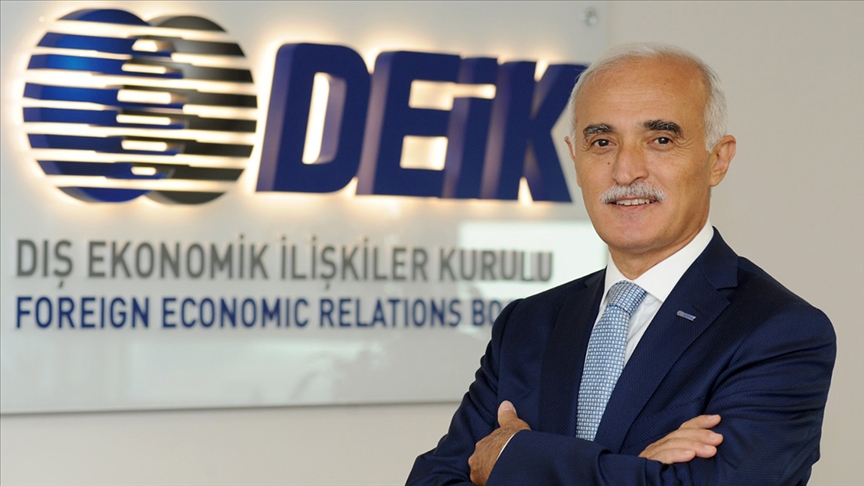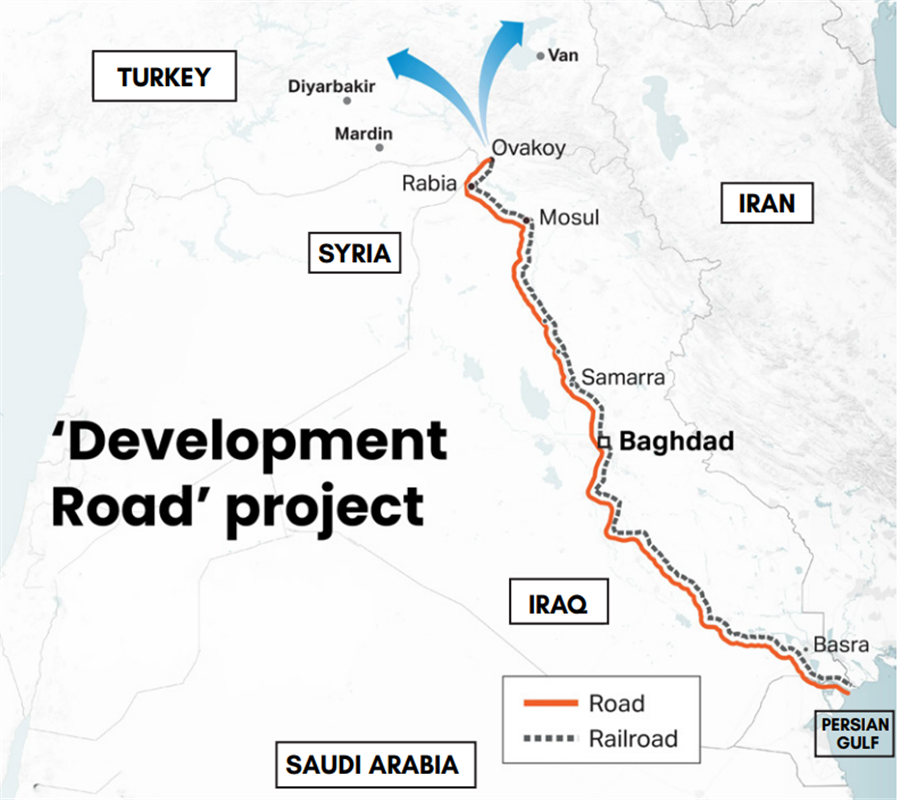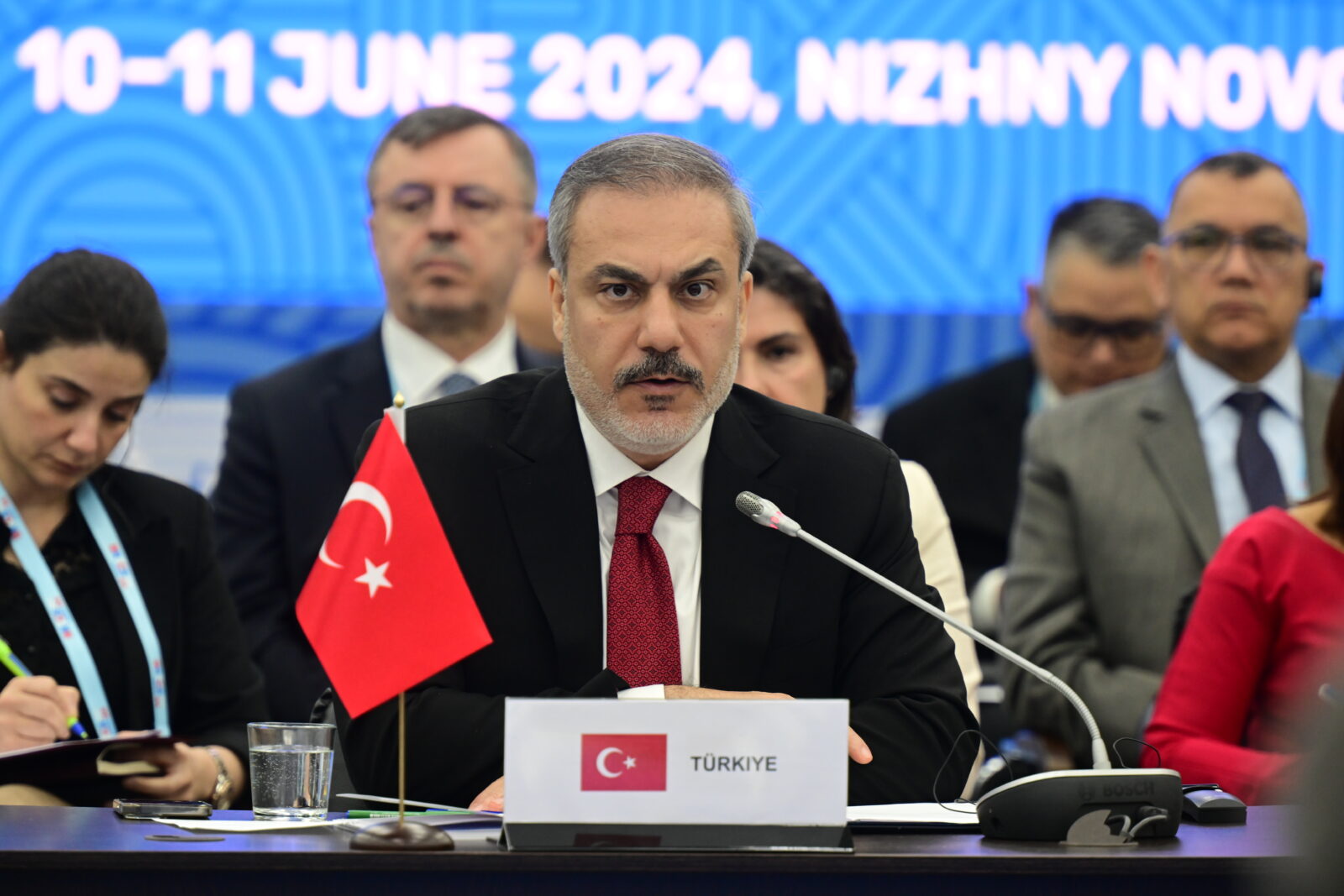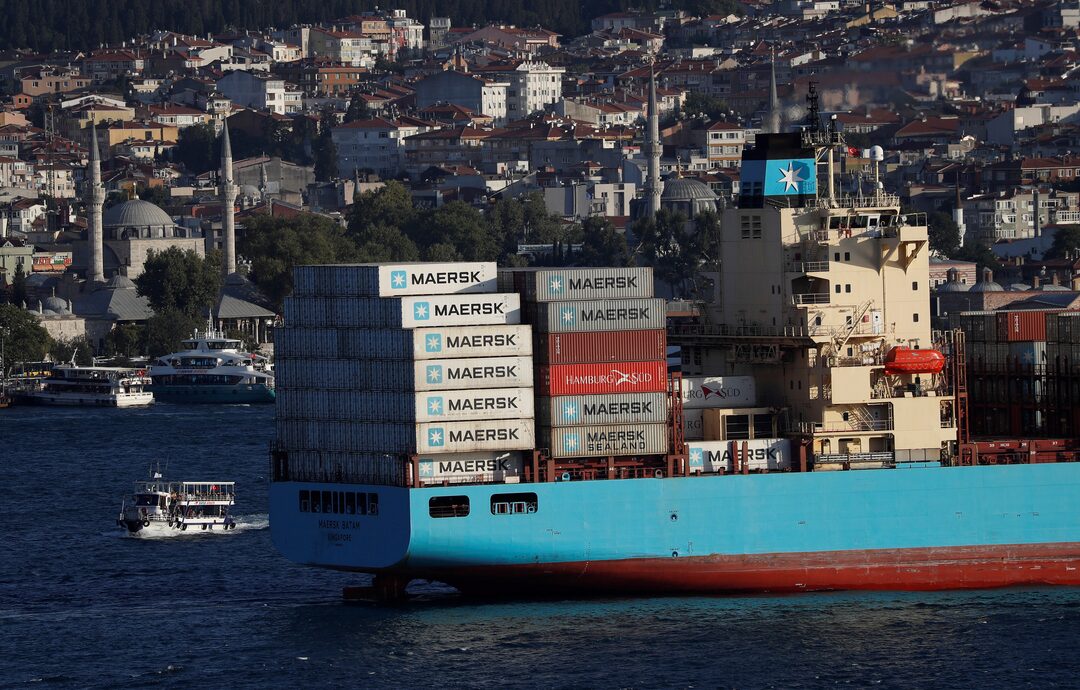
Nail Olpak, chairman of the Foreign Economic Relations Board (DEIK), met with journalists in his hometown of Burdur, Türkiye to discuss critical issues surrounding Türkiye's export industry, the role of Turkish contractors in global markets, and China's Belt and Road Initiative (BRI), also sometimes referred to as the New Silk Road.
DEIK President Olpak said that China has invested between $50 billion and $60 billion in the BRI project so far. He added that China is seeking to access the lucrative European market more quickly and efficiently, currently relying on sea routes, with a journey from Shanghai to Amsterdam taking between 40 and 45 days.
Construction
Investment
Power: 152.4
Power: 71.7
Transport: 137.7
Transport: 26.0
Property: 43.3
Property: 18.1
Utilities: 13.5
Utilities: 15.9
Metals: 10.4
Metals: 11.3
BRI by Sector, $ billion 2014-2018. (Data: China Global Investment Tracker)
Olpak noted that an experiment conducted two or three years ago via the Middle Corridor, which includes Türkiye, transported goods from Shanghai to Amsterdam in 11 days. The initial goal was to reduce the transit time to between seven and nine days.
A truck departing from Gaziantep, one of our good exporting provinces, reaches Amsterdam in three to four days, but when China's transit time is reduced to eight days, our logistics advantage, which we call our 'biggest advantage', will disappear.
When we praise China's Belt and Road, we need to know what we are applauding. The trucks coming from there will not go back empty, I need to know how to fill them. We will face a serious loss in Europe, our biggest market.
We must evaluate this project from this perspective. As DEIK, we have two reports on this issue. First, we propose reaching a consensus on our shared viewpoint. We need to clarify our position, as we currently have differing perspectives. If we approach this strategically, we can transform this situation into an opportunity. China has become our largest partner, but we face an unfavorable trade balance of 1 to 10. We must strive to bridge this gap.
Nail Olpak, President of the Foreign Economic Relations Board
Year
Month
Investor or builder
Sector
Amount
Type
2024
February
Harbin Electric
Energy
$300M
Construction
2023
April
Harbin electric
Other
$360M
Construction
2022
March
China National Chemical Engineering
Chemicals
$160M
Construction
2021
July
Sinosteel
Metals
$1250M
Construction
2021
April
Alibaba
Other
$350M
Investment
2021
November
Harbin Electric
Energy
$110M
Construction
2019
September
State Power Investment, Aviation Industry Corp. (AVIC)
Energy
$1320M
Investment
2018
August
Alibaba
Other
$730M
Construction
2017
November
Power Construction Corp. (PowerChina), State Grid
Energy
$1090M
Construction
2016
December
ZTE (Zhongxing Telecommunications Equipment)
Technology
$100M
Investment
2016
May
Bank of China
Finance
$110M
Investment
2016
January
Dongfang Electric
Energy
$660M
Construction
2015
September
China Merchants, China Investment Corporation (CIC), China Ocean Shipping (COSCO)
Logistics
$920M
Investment
2015
May
Sinoma
Real estate
$160M
Construction
2015
May
Sinoma
Real estate
$100M
Construction
2015
February
China National Machinery Industry (Sinomach)
Energy
$380M
Investment
2014
April
Industrial and Commercial Bank of China
Finance
$320M
Investment
2013
August
China National Machinery Industry (Sinomach)
Energy
$220M
Construction
2013
May
Harbin Electric
Energy
$2400M
Construction
2013
February
China General Technology (Genertec)
Energy
$460M
Construction
2013
January
China National Chemical Engineering
Chemicals
$350M
Investment
2013
January
China National Chemical Engineering
Chemicals
$810M
Construction
2012
September
Harbin Electric
Energy
$130M
Investment
2012
September
China National Chemical Engineering
Energy
$640M
Construction
2012
July
China Electric Equipment
Energy
$600M
Investment
2012
June
Chery Auto
Transport
$120M
Investment
2012
June
Power Construction Corp. (PowerChina)
Energy
$210M
Construction
2010
April
China National Machinery Industry (Sinomach)
Energy
$360M
Construction
2010
April
Sinoma
Real estate
$780M
Construction
2009
January
China National Chemical Engineering
Metals
$440M
Construction
2008
October
Datong
Energy
$760M
Investment
2008
June
China National Building Material
Real estate
$110M
Construction
2007
October
China National Machinery Industry (Sinomach)
Energy
$610M
Construction
2005
June
China Railway Construction, China General Technology (Genertec)
Transport
$1270M
Construction
Chinese Investments & Contracts in Türkiye (2005 to 2024). Total amount is $18.69 billion according to the China Global Investment Tracker.
Olpak confirmed that the Middle Corridor of China's BRI project, which utilizes rail transportation, is now operational. He emphasized that the debate over whether to support or obstruct this initiative has already concluded. However, Olpak expressed concern that Türkiye's potential benefits from the corridor are limited to the small fees generated by passing trains, stating, "I need to achieve more than that."
Highlighting the significance of the Development Road Project related to Iraq, Olpak underscored the importance of Türkiye's active participation in this process. He emphasized that Türkiye should not remain a mere spectator but should actively engage in the project, as its involvement is crucial.

In response to the question about Türkiye's BRICS membership, Nail Olpak stated that Türkiye's relationship with the organization is nt new. Türkiye has previously participated in BRICS meetings as an observer member. Olpak described BRICS as more of a political platform than an economic evaluation, suggesting that it could be seen as a new tool in Türkiye's relations with Europe, which have recently shown signs of increased activity.
Reminding that “high-level economic dialogue” meetings were held with the EU before, and that these meetings were canceled after the Eastern Mediterranean crisis, Olpak said:
“At the beginning of this year, “high-level trade” meetings were initiated in Istanbul and a month ago in Brussels with a new name. This was actually the beginning of an implicit way of saying 'we are both standing upright and at the same time let's warm up little by little'.
They invited our Foreign Minister to an informal meeting of foreign ministers for the first time in a long time. Something positive started to be seen in these frozen relations. I see it as a mutualization of politics where they are. I don't think this will lead to a rupture. I think Türkiye can maintain a balanced relationship. When I say this, I would like to say that I have not received any signals from anyone.
This is a negotiation, a process of getting something. I am one of those who think that we can take both balances together.
Nail Olpak, President of DEIK
Olpak also reminded that no steps have been taken to update the Customs Union.

Olpak pointed out that while the Turkish government provides support for exporters, there is room for further improvement. He proposed that the 2% foreign exchange support currently offered to exporters could be increased, suggesting, "The 2% foreign exchange support provided to exporters could be slightly increased without significantly disrupting our budget balance."
He also addressed the 30% foreign exchange conversion requirement imposed on exporters, noting, "A step could be taken to ease the 30% conversion requirement in exports." Moreover, Olpak advocated for more flexible credit growth limits for small and medium-sized enterprises (SMEs), stating that "the 2% credit growth limit for SMEs could be relaxed slightly."

Discussing Turkish contractors' achievements abroad, Olpak highlighted their global success, particularly in securing a $31.5 billion share in international markets in 2022.
"We are second only to China in terms of the number of projects. Turkish contractors are bold and fast, and to date, we have hardly encountered any issues with contractors working abroad. Our pricing and quality are excellent," he said. However, he underscored that the biggest challenge remains in financing.